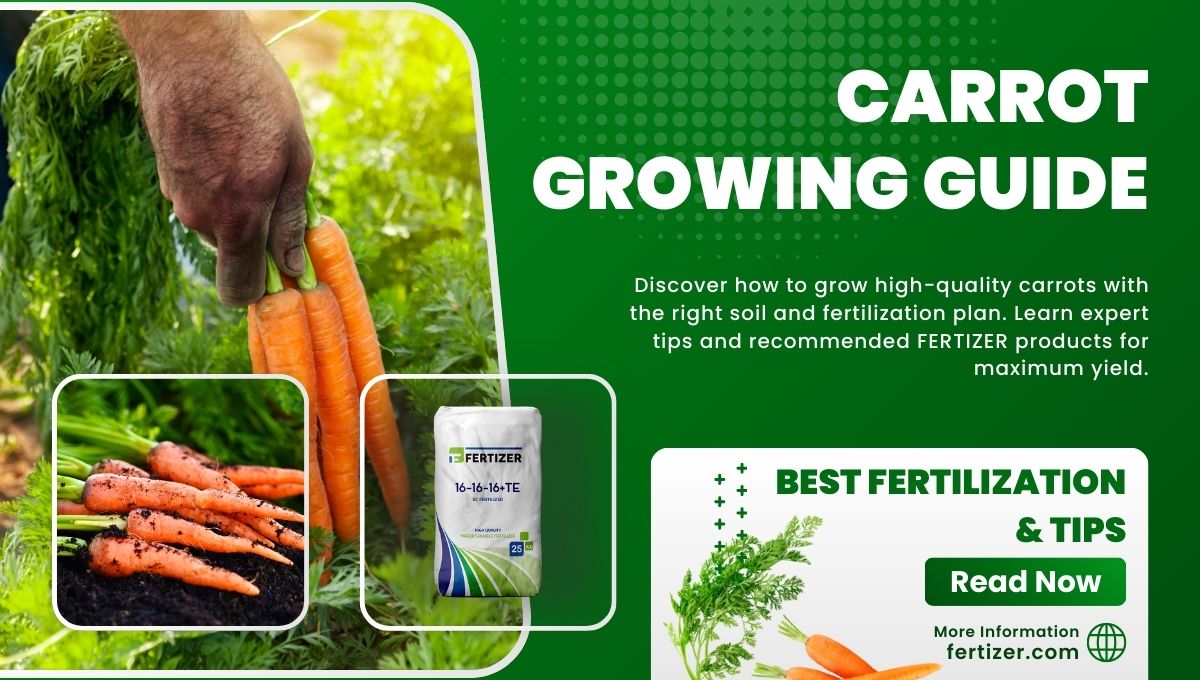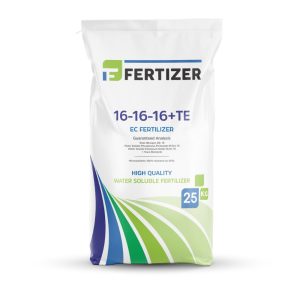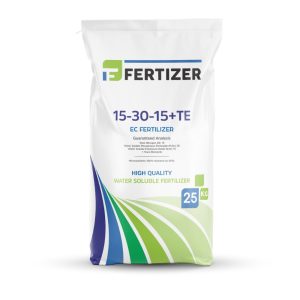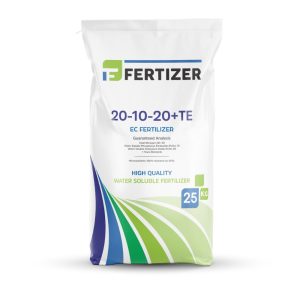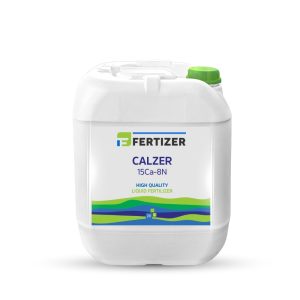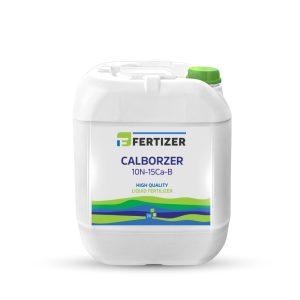Carrot (Daucus carota L.) is a root vegetable rich in vitamins, minerals, and fiber, playing a vital role in human nutrition. Achieving high-yield, quality carrot production depends on proper soil conditions and scientifically grounded fertilization strategies. In this guide, we’ll explore the ideal soil characteristics and fertilization methods using FERTIZER products.
Ideal Soil Conditions for Carrots
Soil Structure
Carrots thrive best in light-textured, sandy-loam soils with good drainage. Heavy clay soils can hinder root development and lead to misshapen carrots. A light and loose soil texture is crucial for developing uniform and straight roots.
Soil pH Range
The optimal soil pH for carrot cultivation is between 6.0 and 7.0. A slightly acidic to neutral pH increases the availability of micronutrients and promotes optimal root development. In alkaline soils, deficiencies in micronutrients may occur, negatively affecting growth.
Nutritional Needs and Fertilization Strategies for Carrots
For quality root development, carrots require a balanced supply of macro and micronutrients. FERTIZER products help meet these needs with scientifically formulated solutions.
Nitrogen (N)
Nitrogen is essential for leaf development and photosynthesis. However, excessive nitrogen may suppress root formation and cause misshapen carrots.
- FERTIZER 16-16-16+TE – Provides balanced growth with controlled nitrogen levels, supporting healthy root formation.
Phosphorus (P)
Phosphorus is critical for root formation and energy transfer. A deficiency leads to stunted root growth and low yields.
- FERTIZER 15-30-15+TE – High phosphorus content promotes root development and boosts energy metabolism.
Potassium (K)
Potassium improves root quality, enhances sugar content, and extends shelf life in carrots.
- FERTIZER 20-10-20+TE – High potassium formula enhances taste and improves root quality.
Calcium (Ca)
Calcium strengthens root cell walls and increases resistance to diseases. Deficiency can lead to root cracking and deformities.
- FERTIZER CALZER Liquid Calcium – Strengthens cell walls and enhances post-harvest root durability.
Boron (B)
Boron is vital for uniform root growth and cell division. Deficiency may cause cracking and abnormal root shapes.
- FERTIZER CALBORZER – Supplies both boron and calcium for uniform root development and strong cellular structure.
Zinc (Zn)
Zinc supports root formation and plays a key role in plant metabolic activities. Deficiency may result in stunted growth.
- FERTIZER SEVENZER – Boosts root development and enhances overall plant metabolism.
Fertilization Program and Application Timing
For best results in carrot farming, follow this fertilization schedule:
- Pre-Sowing: Use FERTIZER 15-30-15+TE to prepare the soil and stimulate early root formation.
- Mid-Growth Stage: Apply FERTIZER 20-10-20+TE for potassium enrichment and improved root quality.
- Development Phase: Use CALBORZER to supply boron and calcium, preventing deformities and increasing resistance.
- Final Stage: Apply SEVENZER for zinc support to complete root development and improve plant metabolism.
Common Problems and Solutions
Root Deformities
Ensure proper soil preparation and apply boron and calcium fertilizers at the right growth stages to avoid this issue.
Nutrient Deficiencies
Conduct regular soil testing to identify deficiencies early and correct them using the appropriate FERTIZER products.
In summary, successful carrot production relies on managing soil properties and implementing scientifically designed fertilization programs. By using FERTIZER products in a timely and strategic manner, you can improve both quality and yield. Backed by consistent soil analysis and tailored nutrition plans, your carrot farming operation can achieve long-term productivity and sustainability.

